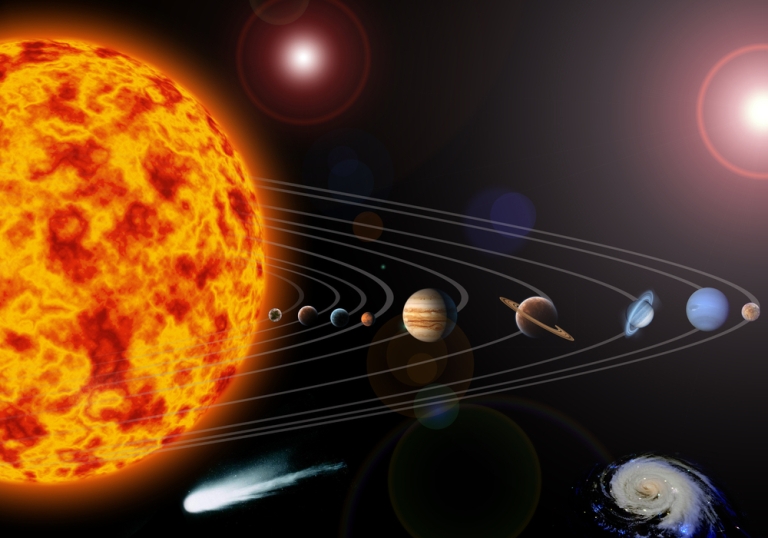Science is a strange mystery that exists today. Gone are the days for when Pluto was a real planet. But the International Astronomical Union (IAU) changed all of that in 2006. It was then that the planet was regarded as a dwarf planet. IAU’s definition of a planet has to fulfill the following criteria:
- It has to orbit the sun
- It needs to large enough for it to be rounded by gravity
- It has to have cleared out its orbit. This means flinging away or absorbing small bodies that once had tried to share that orbit.
Pluto fulfills the first two requirements but not the third. According to IAU, a dwarf planet is not a sub-category of the planet but rather a whole different category. Well, we’re to show why it should still be qualified as a planet otherwise.
- Not every planet has cleared their orbit
Now, what does it meant for a planet to clear its orbit? If a planet’s orbit has to be cleared, then shouldn’t that also disqualify Saturn due to its ring system, Jupiter for its Trojan asteroids and Earth for its NEARS? Add that to the fact that there is also dust around the orbit.
Considering all the above factors, there shouldn’t even be a single planet in the solar system.
- All dwarf planets should technically be planets
Seeing as how we cleared the first point, it only makes sense to regard every other dwarf planet in the system as a planet. Other than Pluto, there is Ceres, Makemake, and Eres, which is larger than Pluto. NASA’s recent trip to Pluto has made a new call to have Pluto be called a planet once again.
- Size doesn’t matter
If Pluto is regarded as a dwarf planet due to its size, then that is a weak argument. Comparing Pluto to that of the earth is like comparing earth to the size of Jupiter. From a visual perspective, it is not a realistic conclusion. As a matter of fact, it is just plain ridiculous.
- It is a lot like earth
There are plenty of things about Pluto that make it stand out as a planet very much like Earth. It has its own planet that is called Charon and is geologically active. This means that it is filled with natural features like water, ice, and rocks.
- Pluto is not a comet
Renowned astrophysicist Neil deGrasse Tyson once said: “Pluto is my favorite comet”. He said this largely due to Pluto’s ice content. He also said that if Pluto were any close to the sun, it would “grow a tail”. Neil claims that that is not the kind of behavior one would see from a planet.
Holding on to the “planets don’t have tails” belief and the thought that he thinks Pluto behaves like a comet, then it must be a comet. The whole idea about “Pluto growing a tail” is just implausible. Not only is it a violation of the laws of physics, but it is also an internet meme that has been constantly reinforced.
For the record, Pluto is comprised of only 30% ice and the rest is rock. Some exoplanets do have tails, but if it behaves practically like a planet, then it should be one as well.
- Only 2% of the IAU voted to demote Pluto
If there were at the time 10,000 internationally registered members of the Astronomical Union and only 237 (which are 2%) got to vote, then this is just wrong. This is a complete violation of democracy and logic as well. Just because 9,500 other members weren’t present at the time, doesn’t excuse someone of such an insensible decision.
We only want to promote something that is fair, sound in logic and honest to the masses. Therefore, Pluto still has most of what it means to be a planet.
Author bio: Anna Marsh works as an astrophysicist for Essay Ace. She is always reaching out to the stars and the wonders of the universe. You can follow her on Facebook | Twitter | Google+

